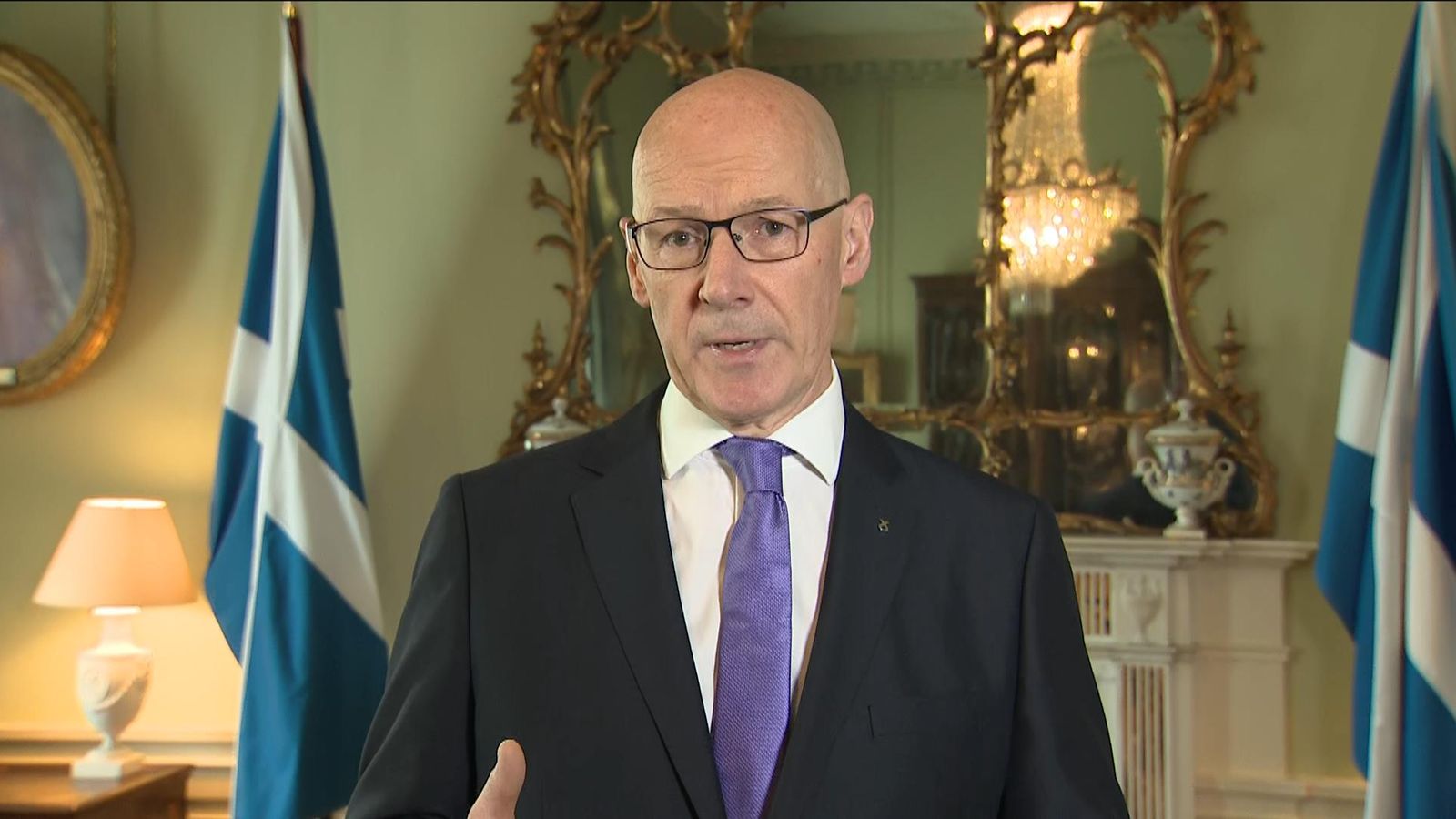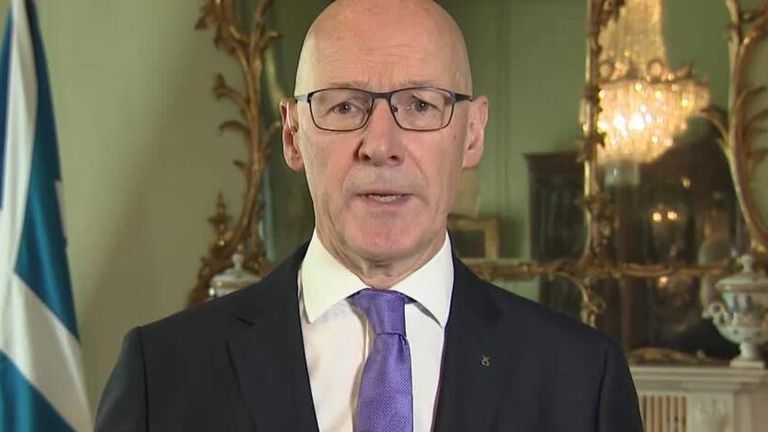Scotland’s new leader John Swinney: Gender recognition reforms ‘cannot be implemented’


Scotland’s new first minister has told Sky News that the controversial gender recognition reforms “cannot be implemented.”
John Swinney, who became first minister this week, has faced questions over his stance on gender recognition after MSPs voted in 2022 to pass a bill to make it simpler for people to change their gender without having to obtain a medical diagnosis.
The UK government blocked the bill from being made into law and the Supreme Court rejected a request by the Scottish government for a judicial review.
Politics latest: Starmer sets out plan to tackle small boat crossings
Asked if he would be fighting to push the bill through, Mr Swinney told Sky News: “The reality of the situation we face is that the Supreme Court has said that we can’t legislate in that area. We can’t take forward that legislation.”
His predecessor Humza Yousaf had previously suggested he wanted to work with the UK Labour Party to amend the laws ahead of the general election.
Scottish ministers said the scheme, dubbed self-ID, was aimed at making life easier for the trans community but women’s campaigners said it threatened their rights.
Mr Swinney made former leadership contestant Kate Forbes his deputy this week, which has caused some consternation within the party as she previously said she would have voted against gay marriage but would not seek to overturn the law if she became first minister.
But Mr Swinney sought to reassure the LGBT community, saying he had voted for gay marriage and introduced inclusive education into schools when he was education secretary.
Advertisement
Read more:
Elphicke defection ‘like being punched in the gut’, says MP
Can British farming survive?
Failed asylum seeker pays smuggler to return him to France
Mr Swinney said: “I think what’s the most important thing that I can see is that to LGBT people in our society, the Scottish government is on their side.
“We have been on their side and we will be on their side in the years to come.”
A Scottish government spokeswoman said: “The Gender Recognition Reform Bill was passed by the Scottish Parliament.
“If the UK government lifted its legal block – the section 35 order – it would become law.
“The problem is that the current UK government has said they will not.
“The Scottish government’s position is simple – UK government should lift their section 35 order.
“They have made clear however that they will not, and until they do, it is simply not legal to implement the legislation.”

Keep up with all the latest news from the UK and around the world by following Sky News
Independence ‘can be achieved in five years’
Mr Swinney also said he believes Scotland could split from the rest of the UK in five years thanks to Brexit and the cost of living crisis.
He told Sky News: “I think independence can be delivered in that timescale because the arguments for it are compelling.
“If we look at two of the biggest issues we face as a country in Scotland; the effect of the cost of living and the implications of Brexit.
“Both of those are major strategic factors that are doing severe economic and social damage to Scotland because of bad decisions taken in Westminster.
“And independence is the answer to that.”
Please use Chrome browser for a more accessible video player

8:03
‘Independence can be delivered in five years’
He said Scotland was “forced out of the European Union against our will” as a majority in the country voted to remain.
“If we’d been an independent country, we will be able to take part in Europe and not have all the damaging disruption that we faced,” he added.
Mr Swinney was deputy first minister under Nicola Sturgeon, who was leader of the SNP and first minister from 2014 to 2023 when she stepped down.
Ms Sturgeon wanted to use the next general election as a de facto second referendum on independence after the Supreme Court ruled a vote cannot be held without the UK government’s consent – but it is yet to be seen what Mr Swinney favours.